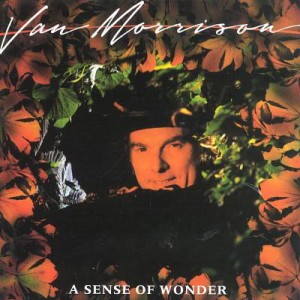A moment of eerie synchronicity with this tune just caught me.
 I hadn’t heard it in 25 years, but a lyric from here, actually a line William Blake’s poetry, has stuck with me ever since I eagerly lapped up A Sense of Wonder on day of release in 1985: “Wisdom is sold in the desolate market where none can come to buy.” Occasionally I remember that line and replay this work in my mind—bathing in sad but golden memories– without actually hearing it. It should surprise no one that Blake’s poetry stuck with me longer than any other lyrics from 1985.
I hadn’t heard it in 25 years, but a lyric from here, actually a line William Blake’s poetry, has stuck with me ever since I eagerly lapped up A Sense of Wonder on day of release in 1985: “Wisdom is sold in the desolate market where none can come to buy.” Occasionally I remember that line and replay this work in my mind—bathing in sad but golden memories– without actually hearing it. It should surprise no one that Blake’s poetry stuck with me longer than any other lyrics from 1985.
Thirty years ago, setting romantic poets to pop music wasn’t common (this song incorporates Blake’s masterwork, “The Price of Experience”) but wasn’t out of the question either. It’s harder to imagine a similar thing happening nowadays, but I digress.
Back to the dark Scottish lake of synchronicity: today, with Youtube assistance, I reexamined my initial love of this admittedly dour tune by comparing the actual sounds with my powerful and idealized memories of them. I discovered Van Morrison’s official Youtube source had added “Let the Slave” only today, as if they anticipated my desires by hours, and that I was the first person to listen to their Youtube offering.
And, listening many times, I can genuinely declare this to be one of Van’s great tunes, perhaps his best with extensive spoken word. His delivery is flawless, the playing of the musicians and the sonic production are transcendent, and the result is deathless, as beautiful today, and probably even more so, than it was in 1985.
Sir George Ivan Morrison will celebrate his 70th birthday in many and various ways on August 31, 2015 (“We were the War children – born 1945,” he sang in “Wild Children”). Happy Birthday Van!
What is the price of Experience? Do men buy it for a song?
Or wisdom for a dance in the street? No, it is bought with the price
Of all that a man hath, his house, his wife, his children
Wisdom is sold in the desolate market where none can come to buy
And in the wither’d field where the farmer ploughs for bread in vainIt is an easy thing to triumph in the summer’s sun
And in the vintage and to sing on the waggon loaded with corn
It is an easy thing to talk of patience to the afflicted
To speak the laws of prudence to the homeless wanderer
To listen to the hungry raven’s cry in wintry season
When the red blood is fill’d with wine and with the marrow of lambsIt is an easy thing to laugh at wrathful elements
To hear the dog howl at the wintry door, the ox in the slaughterhouse moan;
To see a god on every wind and a blessing on every blast
To hear sounds of love in the thunderstorm that destroys our enemies’ house;
To rejoice in the blight that covers his field and the sickness that cuts off his children
While our olive and vine sing and laugh round our door and our children bring fruits and flowersThen the groan and the dolour are quite forgotten and the slave grinding at the mill
And the captive in chains and the poor in the prison and the soldier in the field
When the shatter’d bone hath laid him groaning among the happier dead
It is an easy thing to rejoice in the tents of prosperity:
Thus could I sing and thus rejoice: but it is not so with me.― William Blake
Here’s a nifty explication of Van’s “In the Days Before Rock’n Roll” in The Immortal Jukebox


